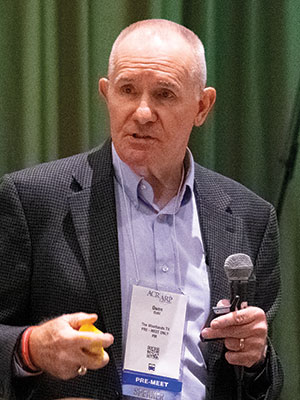
A healthcare practice is a business, and it must operate like one to survive, medical practice management consultant Owen Dahl, FACHE, CHBC, LSSMBB, reminded attendees in his keynote address “Master the Principles to Ensure Your Healthcare Practice’s Survival” on Saturday during the Practice Matters: Navigate A Path to Success! premeeting course.
Dahl offered several principles for survival by using PEARLS in the rheumatology practice as an acronym, P for Patient/Profits, E for Engagement, A for Attitude, R for Robotics, L for Lean, and coming back to S for Survival to round out the discussion.
In the patient and profit portion, Dahl emphasized it’s critical to know how much it costs to provide your service.
“If you don’t know the cost of a basic unit of service, you’re not functioning as a solid business model,” said Dahl, a principal of Dahl Consulting Group in Houston, TX.
Dahl also mentioned that if you focus only on profits, the business will likely fail.
“Focus on the patient, focus on meeting those patient expectations, and your profits will follow,” he said.
Dahl explained engagement as the emotional evolvement and commitment patients get from the staff, usually communicated through body language, tone of voice — the two biggest factors — and word choice. Good engagement produces positive outcomes and patient experience. He recommended having staff introduce themselves when a patient comes in and also doing daily team huddles at the beginning of the day. He also reminded attendees that it’s critical to communicate with different generations and different cultures appropriately.
Attitude, or culture, refers to what kind of tone you’re setting in your practice and what you consider as your important values — for example, maintaining good relationships with employees, and how you act on those values.
One way to determine the attitude or culture of your organization is to look at what you focused on first in your last board meeting: the patient care quality system or financial system. The one you focus on is the driver of culture.
Dahl also recommended looking at what your office is doing in terms of robotics and artificial intelligence — wearables, for example — and examining how to get lean by looking for ways to maximize productivity and efficiency.
He concluded by discussing the importance of being willing to change the way you operate to survive.
“You’ve got to transition to a new way of doing things or you’re not going to be successful,” he said.
